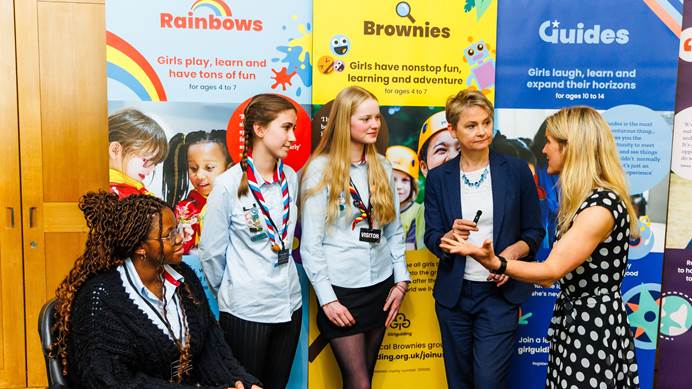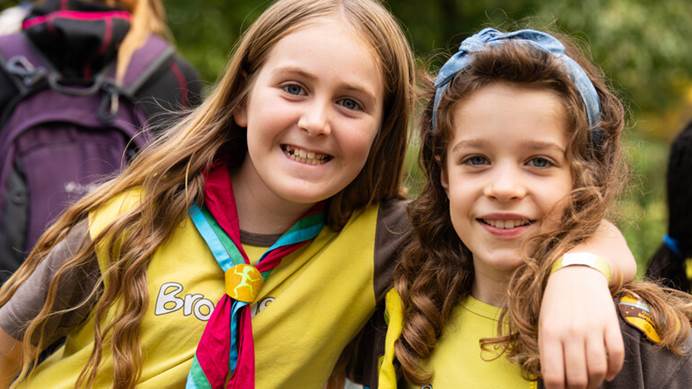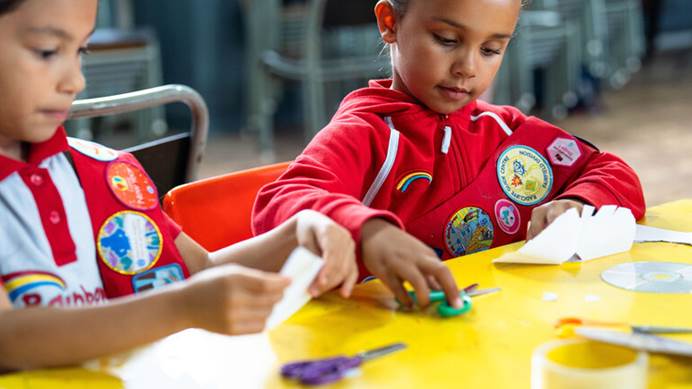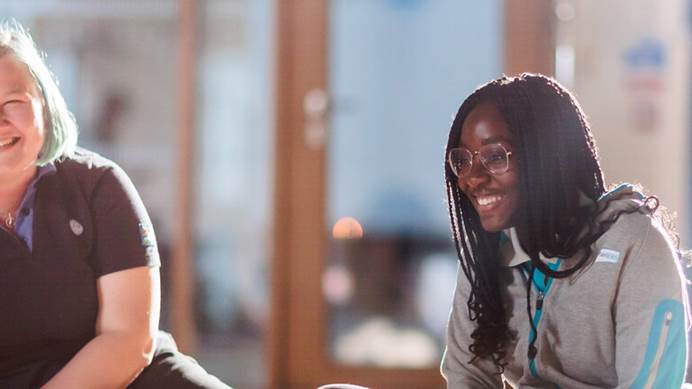Why I loved the summer of women’s sport
The summer of women’s sport was so inspiring and exciting. Now it’s time to keep the momentum going.
Our advocate Izzy, 16, tells us about how inspired she was after a whole summer of women’s sport.
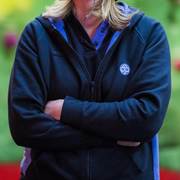
Izzy, 16, Southampton Izzy cares about: Inclusion and equal opportunity
'I chose to join the advocate panel because I saw it as the perfect opportunity to unite my two main interests - Girlguiding and campaigning on issues that I'm passionate and hope to make a difference about. Whilst on the panel, I'd love to make an impact that makes a positive difference to girls in the UK and abroad, hoping to contribute to the overall equality of young women in the world.'
The 2008 Beijing Olympics is the first time I remember seeing sport on TV. I was seven and I remember the buzz as team GB crushed records, winning endless medals. You can’t reduce the sheer awe millions of people across the world had when watching Usain Bolt break the world record. But something was missing from the games - the coverage of women’s events. Why were they always second fiddle when it came to press coverage and attention?
In summer 2015, the Women’s World Cup was on TV. It was the first time I was genuinely enthralled by football. For years, I’d been told “football was for boys” and “girls can’t kick” and this really put me off. I just accepted football wasn’t for girls and so I didn’t play. At school I avoided joining any sports clubs or teams, thinking I would be pushed out by boys, who I accepted were just better at sports.
But something was missing from the games - the coverage of women’s events. Why were they always second fiddle when it came to press coverage and attention?
Women’s sport is exciting, dynamic and passionate
There was something magical about watching our women reach their best ever position and my sister, a keen footballer, realised she could be taken seriously.
And I’m not the only girl who felt sport wasn’t for me. According to Girlguiding’s Girls’ Attitudes Survey, two-thirds of young women aged 17-21 think having less women’s sport on TV than men’s sends the message sport is more for boys. It’s damaging rhetoric. But watching the Lionesses get all the way to third place in 2015 made me realise women’s football and women’s sport is as exciting, dynamic and passionate as men’s sport. The coverage didn’t reflect this though. A lot of people didn’t know the World Cup was even on. But I felt inspired. There was something magical about watching our women reach their best ever position and my sister, a keen footballer, realised she could be taken seriously.
Summer 2019 has been a goldmine for women’s sport. We’ve seen England storm to third place at the Netball World Cup in Liverpool. Simona Halep’s near perfect performance against Serena Williams in the Wimbledon final. And the Lionesses drew the biggest ever audience for women’s football when their semi-final against the USA was watched by 11.7 million viewers. A genuine sportsphobe for most of my life (I consider it an achievement to get up the stairs) I’ve watched all these events. They were an exhilarating spectacle of talent and hard work.
68% of girls and young women aged 7-21 want to see an increase in the amount of women’s sport shown on TV, according to Girlguiding’s research.
Finally, it feels like there is something for me, for girls, to enjoy. There is a hunger for more coverage of women’s sport. 68% of girls and young women aged 7-21 want to see an increase in the amount of women’s sport shown on TV, according to Girlguiding’s research. Visibility is key to encouraging girls to get involved. If I’d seen more role models on the TV, I probably would have reconsidered my resistance to trying different sports. The only team I ever joined properly in secondary school was rounders.
Maintaining momentum
Let’s talk about the issues that matter - the gender pay gap and increasing the number of women commentators and sports journalists.
I worry this summer of coverage is an anomaly and women will once again be relegated from headline-grabbing to the small print. So how do we keep up this momentum? We have role models now, the names and memories to inspire and to make people take notice, like footballer Ellen White and Netballer Geva Mentor. I want the days where women’s sports stars receive less coverage to be gone. For the focus of coverage to stay away from their appearance or personal lives. Let’s talk about the issues that matter - the gender pay gap and increasing the number of women commentators and sports journalists.
Girlguiding’s Girls’ Attitudes Survey found 80% of girls and young women aged 7-21 said there should be an equal amount of women’s and men’s sport shown on TV.
So, there is still work to be done, but I’m hoping this summer of women’s sporting achievements starts a momentum. Not only at grassroots level, but encouragement for big broadcasters to start showing more women’s sport. Girlguiding’s Girls’ Attitudes Survey found 80% of girls and young women aged 7-21 said there should be an equal amount of women’s and men’s sport shown on TV. The viewing figures show there’s an appetite for it. People want to watch it. Girls want to watch it. After all, you can’t be what you can’t see. I’d certainly watch and play more sport and I’m sure girls would to, if they had more visible role models.
This summer has been exhilarating for women’s sport. I hope somewhere, the next superstar of the sporting world has been inspired.
